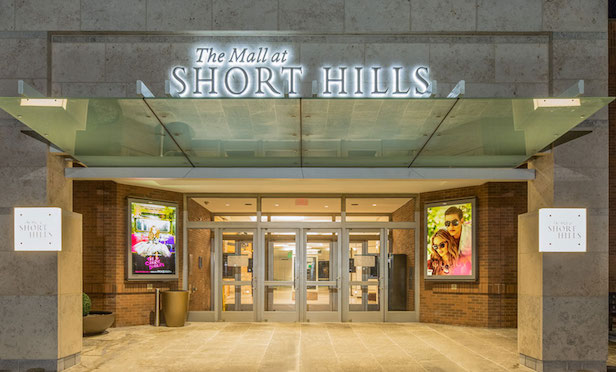
WASHINGTON, DC—Mall and shopping center landlords and the retailers that would occupy their properties don't see eye to eye on a number of areas related to brick and mortar stores, says FTI Consulting. As many as 93% of landlords agree or strongly agree that new stores are critical to retailers' sales growth, while just 61% of retailers would say the same.
Owners and tenants also have differing views on location, store design and consumer experience. For example, FTI's survey finds that landlords believe that being located near other high-traffic retailers and providing a compelling architectural design and physical environment—cited by 87% and 73%, respectively, of owners surveyed—are the two most important benefits they could offer a retail tenant.
The figures are lower for retailers: 66% and 44%, respectively. Retailers think convenient parking is more important than design and store environment; 52% cited this factor.
Another disparity in priorities is found in the value of flexible store configuration: 40% of retailers say this is important, while just 10% of landlords would agree. Conversely, only 33% of landlords, compared with 73% of retailers, agree or strongly agree that shoppers require a more personalized in-store experience.
“While it may not come as a total surprise that landlords place a greater value on the physical location of the store than retailers do, these variations in perceptions present a real opportunity for landlords to work more closely with their retail tenants to explore how they can support their growth plans,” says Cynthia Nelson, Los Angeles-based senior managing director in FTI's real estate and infrastructure industry group. By the same token, observes senior managing director Christa Hart with FTI's retail & consumer products practice in New York, “Our research also suggests that many retailers are in denial about deep and pervasive shifts in consumer trends affecting the state of the industry.”
One of the greatest disconnects between landlords and retailers is the concern over evolving consumer demographics and preferences, says Hart. Seventy percent of landlords cite this concern, while only 40% of retailers do. Additionally, 60% of landlords “agree' or “strongly agree” that retail customers are shopping in physical stores less often, while just 37% of retailers have this perception.
The survey found landlords far more concerned than retailers about the shift to online shopping and changing consumer preferences: 80% of landlords, compared to 57% of retailers. In fact, retailers expect e-commerce to account for 23.6% of their sales in three years, up from 16.1% today. For landlords, says Nelson, “This concern is understandable since landlords' real estate assets can't be modified to succeed in the digital era as readily as can retailers' ability to become omnichannel merchants.”

WASHINGTON, DC—Mall and shopping center landlords and the retailers that would occupy their properties don't see eye to eye on a number of areas related to brick and mortar stores, says
Owners and tenants also have differing views on location, store design and consumer experience. For example, FTI's survey finds that landlords believe that being located near other high-traffic retailers and providing a compelling architectural design and physical environment—cited by 87% and 73%, respectively, of owners surveyed—are the two most important benefits they could offer a retail tenant.
The figures are lower for retailers: 66% and 44%, respectively. Retailers think convenient parking is more important than design and store environment; 52% cited this factor.
Another disparity in priorities is found in the value of flexible store configuration: 40% of retailers say this is important, while just 10% of landlords would agree. Conversely, only 33% of landlords, compared with 73% of retailers, agree or strongly agree that shoppers require a more personalized in-store experience.
“While it may not come as a total surprise that landlords place a greater value on the physical location of the store than retailers do, these variations in perceptions present a real opportunity for landlords to work more closely with their retail tenants to explore how they can support their growth plans,” says Cynthia Nelson, Los Angeles-based senior managing director in FTI's real estate and infrastructure industry group. By the same token, observes senior managing director Christa Hart with FTI's retail & consumer products practice in
One of the greatest disconnects between landlords and retailers is the concern over evolving consumer demographics and preferences, says Hart. Seventy percent of landlords cite this concern, while only 40% of retailers do. Additionally, 60% of landlords “agree' or “strongly agree” that retail customers are shopping in physical stores less often, while just 37% of retailers have this perception.
The survey found landlords far more concerned than retailers about the shift to online shopping and changing consumer preferences: 80% of landlords, compared to 57% of retailers. In fact, retailers expect e-commerce to account for 23.6% of their sales in three years, up from 16.1% today. For landlords, says Nelson, “This concern is understandable since landlords' real estate assets can't be modified to succeed in the digital era as readily as can retailers' ability to become omnichannel merchants.”
© 2025 ALM Global, LLC, All Rights Reserved. Request academic re-use from www.copyright.com. All other uses, submit a request to [email protected]. For more information visit Asset & Logo Licensing.








